Love Caffeine? Here’s How To Set Up Your Kitchen as a Coffee and Tea Enthusiast
Many people need a little extra kick to start their day, whether it’s a cup of coffee or tea that does the trick. Three-quarters of American adults drink coffee, and more than half have at least one cup daily. Tea is the most widely consumed beverage in the world (next to water).
The specialty coffee market in the U.S. is growing at a rate of 9.2% annually, according to a report by the National Coffee Association. Meanwhile, tea sales have grown about 150% since 1990 to become a $4.8 billion industry, with ready-to-drink teas making up the largest segment.
Considering the popularity of both drinks, it’s no wonder people have made a hobby of it. But whether you’re an experienced enthusiast or a complete beginner, here are some tips and suggestions to make your space the best it can be for brewing.
How To Set Up Your Coffee or Tea Station
Ready to join the ranks of the world’s coffee and tea lovers? There are a variety of ways to set up your coffee or tea-making area. The method you choose will depend on how much space and gear you have. Some enthusiasts may have a dedicated coffee bar or station in their kitchen, while others may only need a small amount of storage space for the basics. Here are some tips for getting everything you need and where to put it.
Find the best place for it
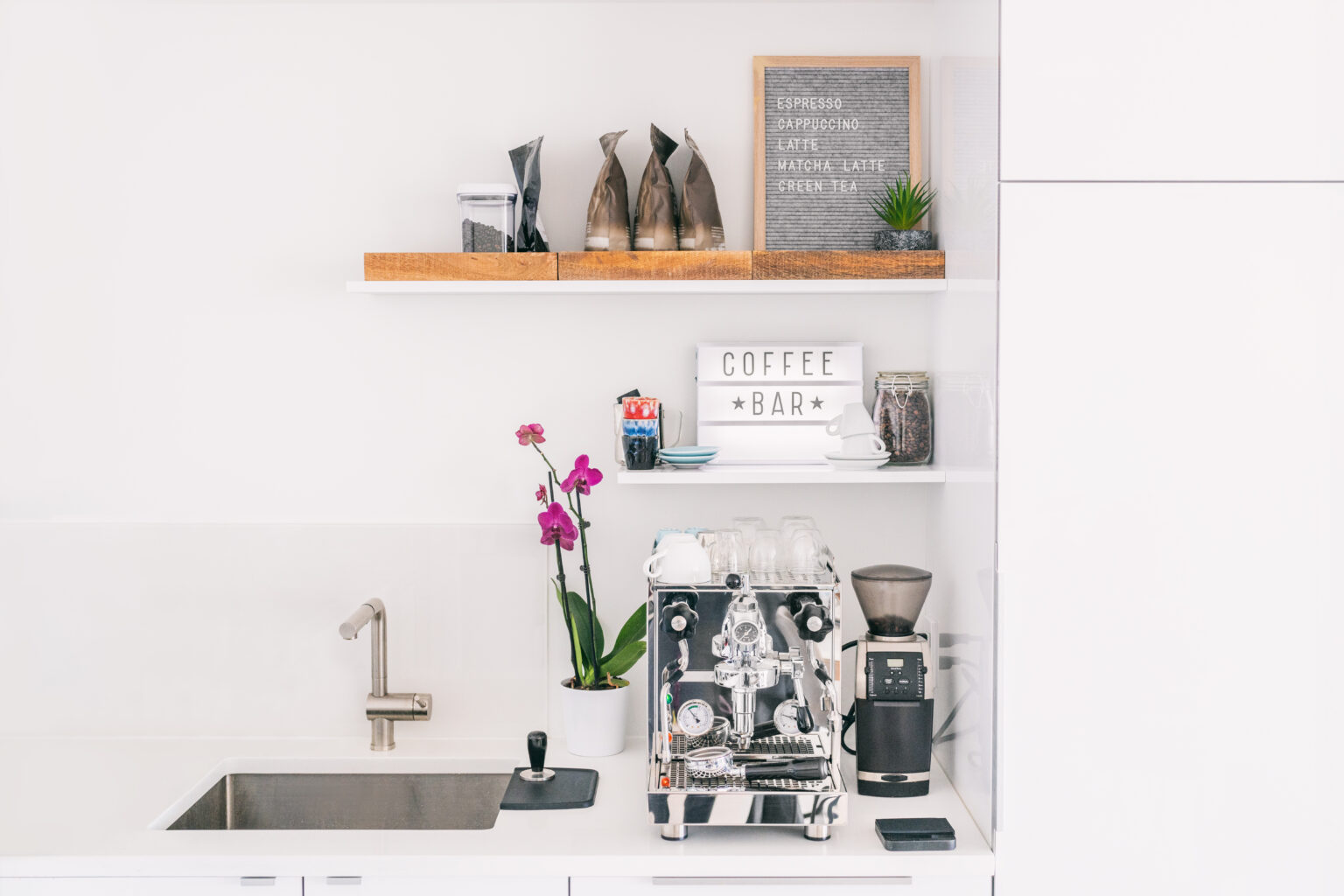
A popular place for a coffee or tea station is the kitchen counter. However, keep in mind that if you’re also a baker or cook, your counter space will shrink significantly if it houses a coffee maker, grinder, decanter, electric kettle, or anything else you might want. Don’t forget to make room in your cabinets or drawers for mugs, canisters, scoops, and other gear!
“While some people store coffee and tea in the refrigerator to preserve freshness, it can cause the beans and leaves to absorb moisture and odors from other foods in the fridge.”
Another option is to set up a separate coffee/tea station using a freestanding table, bar, or custom-made hutch. Either way, make sure that there is access to an electrical outlet and drinking water nearby. If you have an espresso machine, you’ll need to choose a spot with ample room for a knock box, preferably with a backdrop that is easy to clean if there’s splatter.
If space is really a concern, you could try to have a few items that you use the most or are aesthetically pleasing on display, while you keep the rest stored away elsewhere.
Essential supplies for a coffee break
Enjoy brewing coffee more? Here are some essentials you should consider adding to your collection.
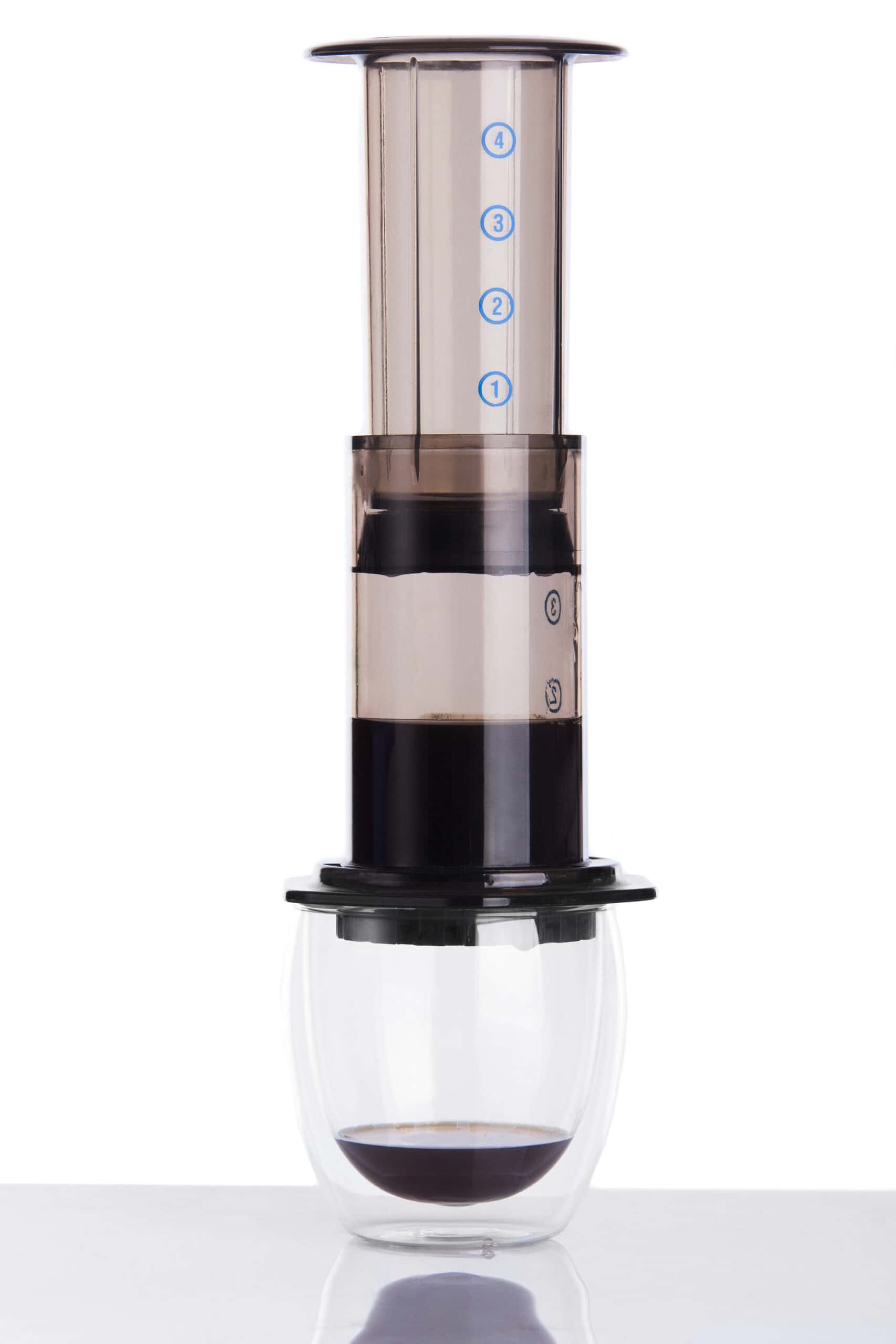
Coffee maker
A basic coffee maker will allow you to brew drip coffee quickly and easily. Many are programmable, so they can be set up to brew a pot of coffee at a specific time, be it for your morning pick-me-up or after dinner with dessert.
French press or Aeropress
These devices use plungers to increase the extraction of oils and flavor from the grounds. This allows for greater control over the brewing process and can produce a rich, full-bodied cup of coffee.
Espresso machine
If you like to make a latte espresso-based drinks, you may consider investing in an espresso machine. They tend to be expensive, so make sure you’re getting enough mileage out of them to make the spend worth it.
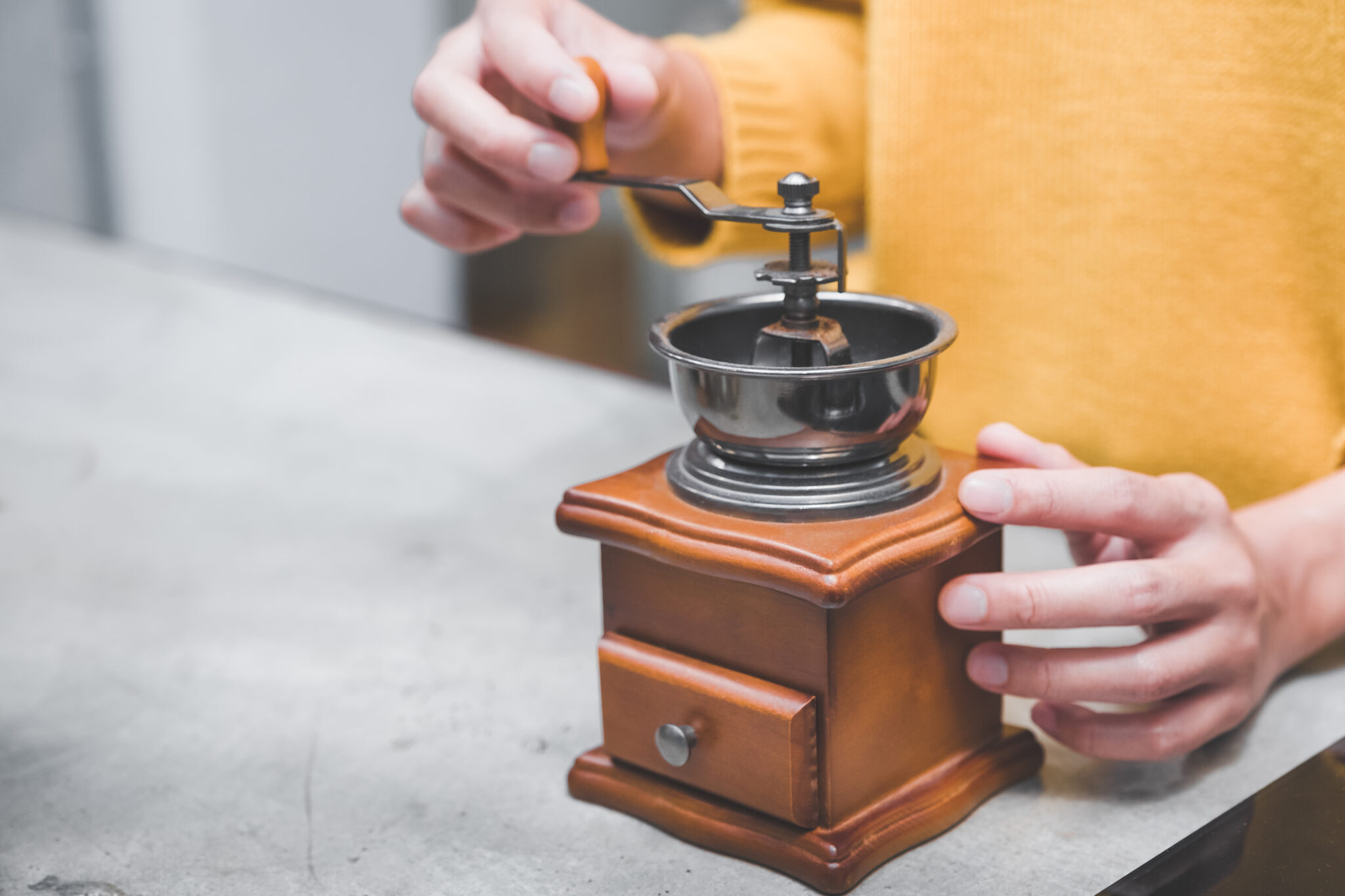
A burr grinder allows you to grind coffee beans fresh just before brewing, which leads to a better taste and aroma. They come in two types: electric and manual. Electric grinders are more convenient, can handle large amounts of beans at once, and have settings from coarse to fine grounds. Manual grinders are for smaller batches, create more uniform grounds, and are easier to clean.
Digital scale and timer
For a consistent and precise cup of coffee, a scale and timer help to accurately measure and time the brewing process.
Milk frother
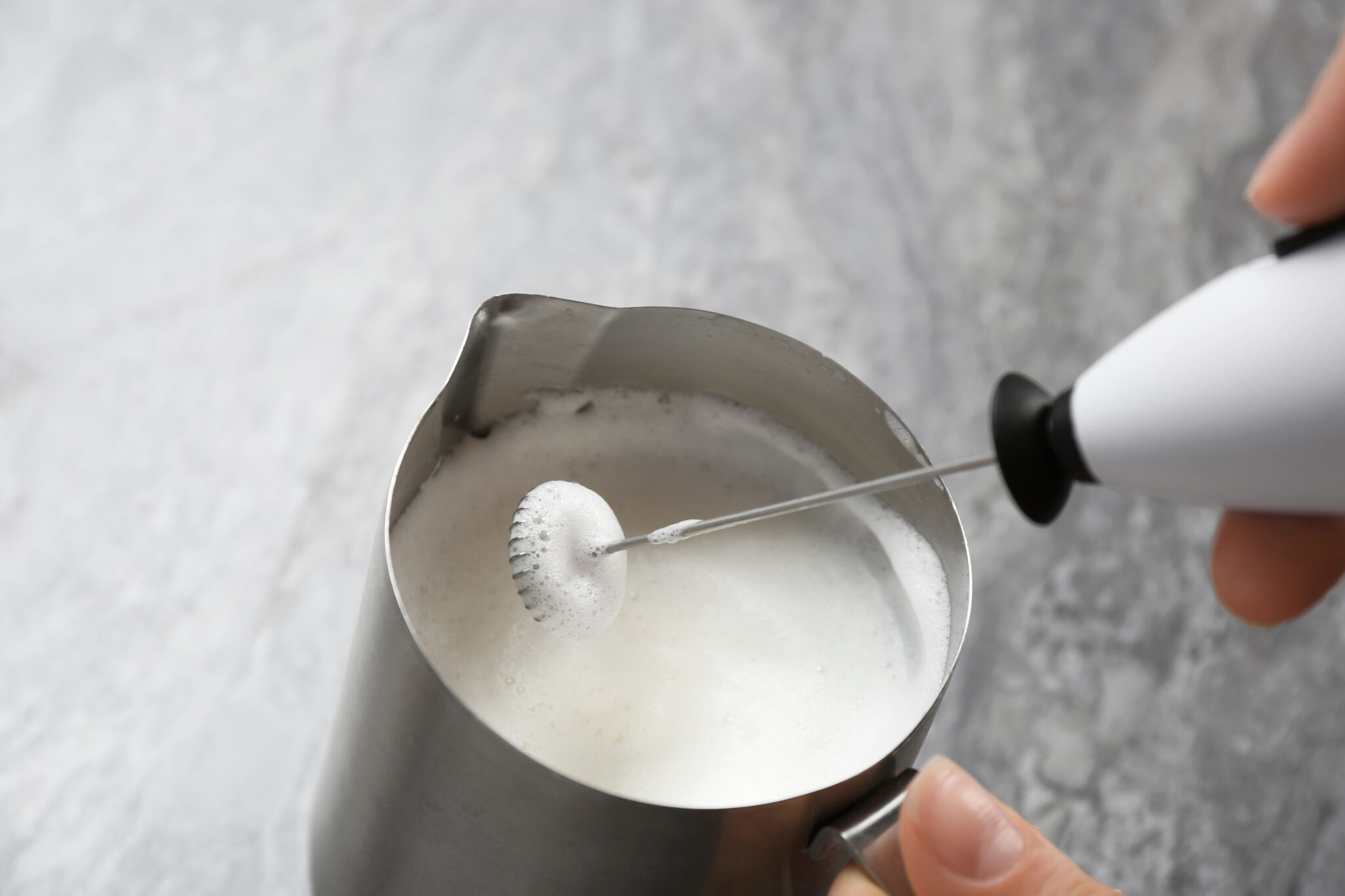
You can go minimal with a handheld, battery-powered mixer and stainless steel milk frothing pitcher will help you create foam to top off your coffee creations.
Coffee mugs and cups
Coffee drinkers tend to have a large and assorted collection of mugs and cups for drinking different amounts and styles of coffee.
Beans storage
To keep coffee fresh and prolong the life of the beans, some people will use airtight containers, vacuum-sealed bags, or special storage canisters.
Water heater
A traditional kettle works just fine, though you may want to have an electric one that allows you to quickly heat water precisely to the correct temperature for brewing coffee.

See prices for local moving labor. Read real customer reviews. Easily book your help online.
Essential supplies for teatime
For the serious tea enthusiast, there are a number of things you should have in your arsenal.
Teapot or electric kettle
Again, an electric kettle is your best bet for heating water to the proper temperature, as different types of tea require different temperatures for brewing. Otherwise, it’s a good idea to use a thermometer along with your teapot to ensure the correct temp.
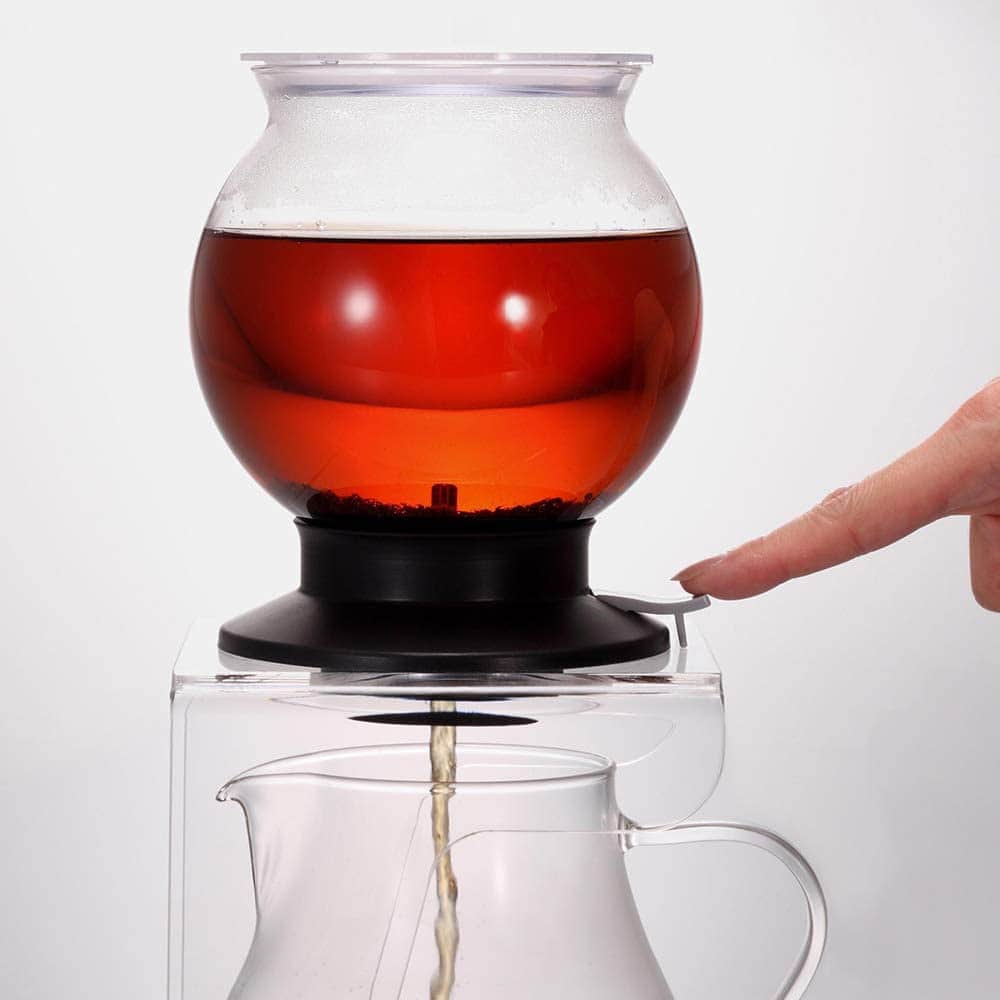
Infuser/strainer
These are used to steep loose-leaf teas, and can be metal or mesh strainers, balls, or special teapots with built-in infusers.
This method of brewing loose-leaf tea allows for greater control over the steeping time and strength of the tea compared to using tea bags.
Teacups and saucers
Some tea enthusiasts may prefer traditional ceramic or glass cups, while others may prefer insulated or double-walled cups to keep their tea warm.
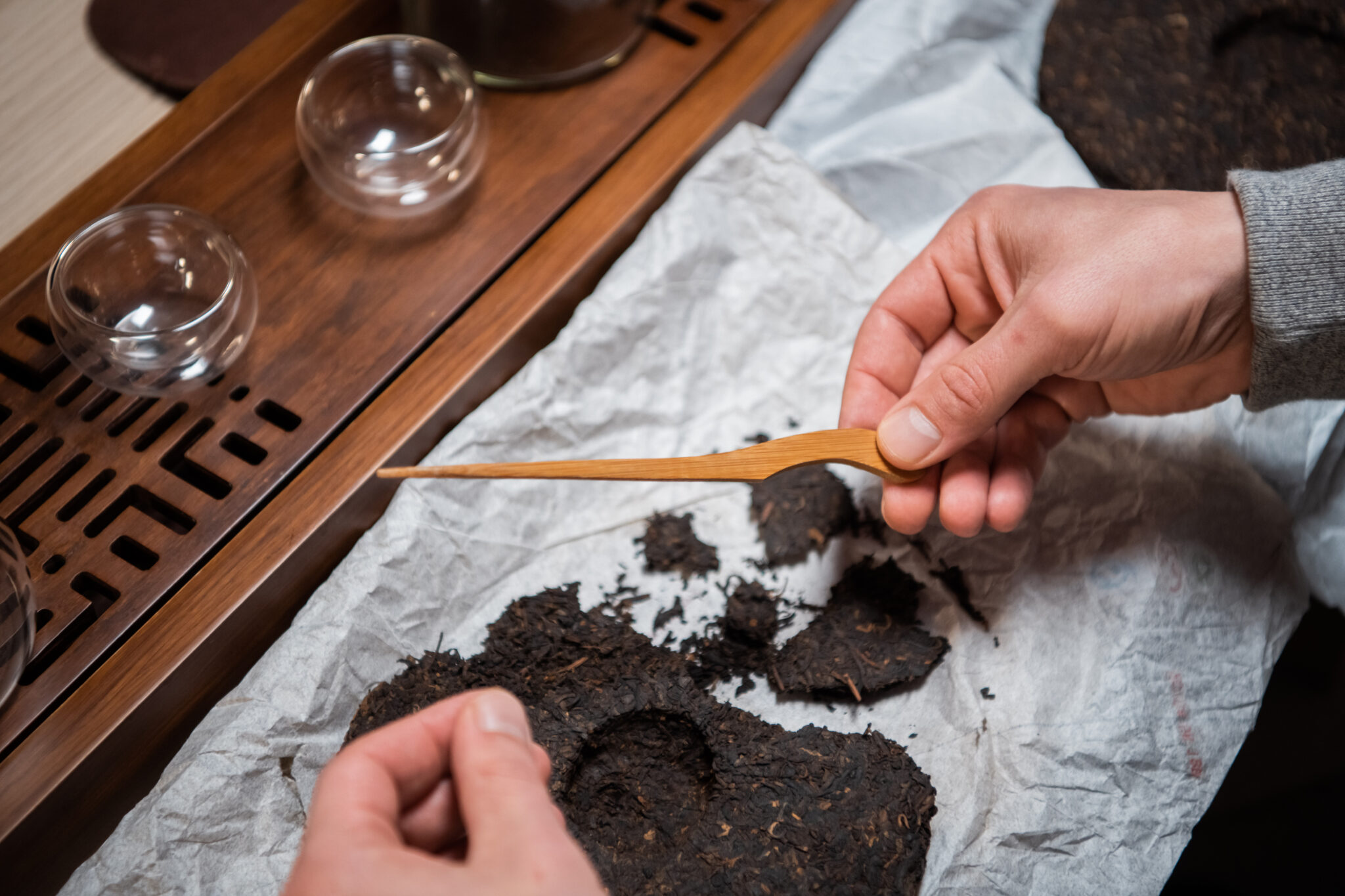
This small, thin, pointed tool is used to break off small pieces of a tea cake and pick them up for steeping. It is typically made of metal or bamboo.
Teaspoon or scoop
This is useful for measuring the right amount of loose-leaf tea.
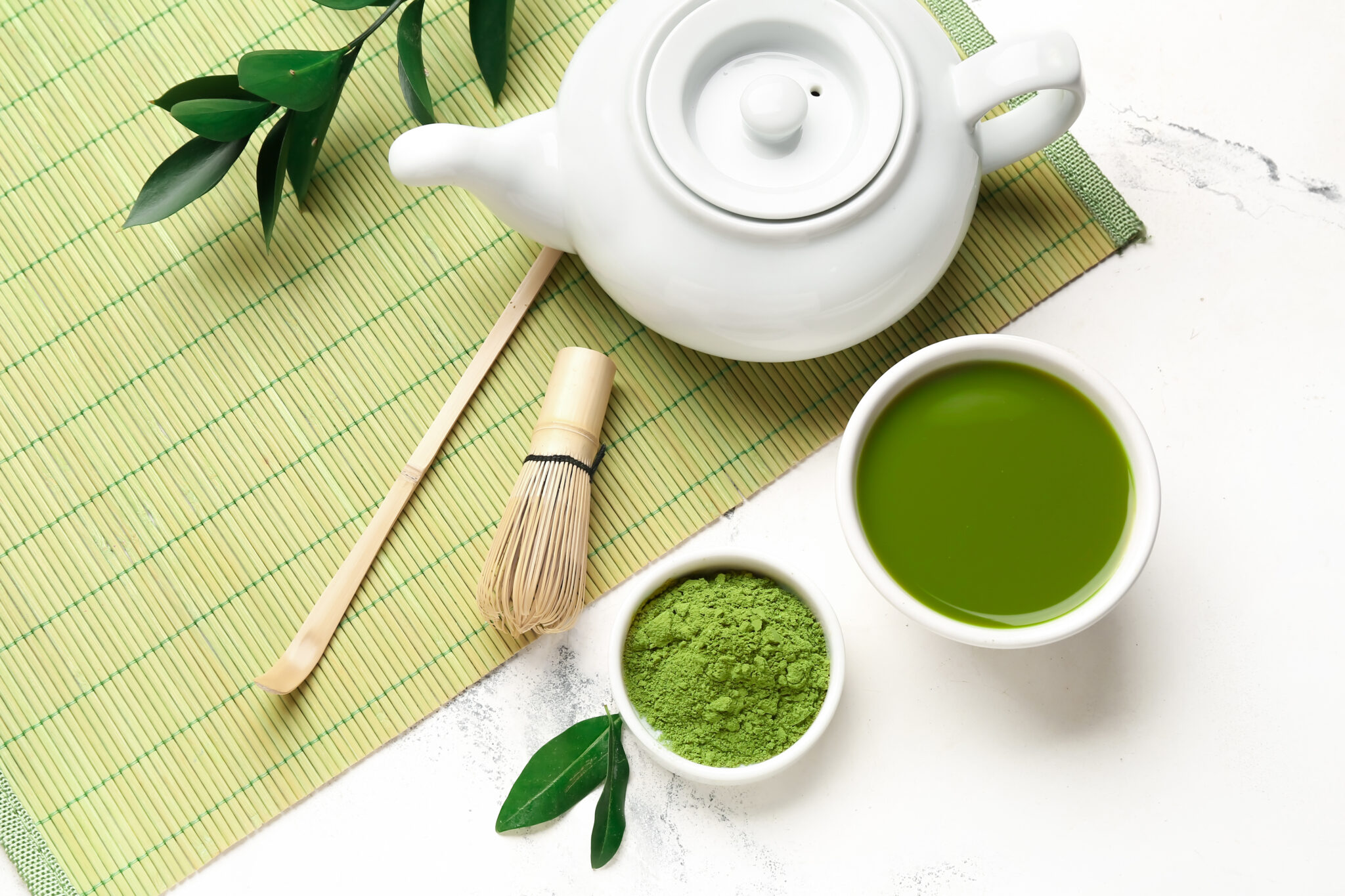
If you’re into drinking matcha, you may want to invest in a specific matcha bowl, scoop, and whisk. The process for making this tea is different than typical loose-leaf, so you need the right tools for the right flavor.
Organic silk tea bags
These have enough space for whole-leaf teas to open and don’t leak any microplastics into the brew since they’re organic.
Container for used tea leaves
This keeps your counter clean and makes it easy to dispose of used tea leaves. It can also be used for some types of teas to be brewed multiple times.
“So where are the country’s biggest coffee lovers? Berkeley, California has the most coffee shops, with one for every 2,073 people.”
Of course, this isn’t an exhaustive list. And a large amount of equipment isn’t necessary to enjoy a good cup of coffee or tea. But these items can help make the process more convenient and enjoyable. The exact setup you choose will depend on personal preference, budget, and the type of coffee or tea you intend to use.
Tea-and-coffee-specific storage solutions
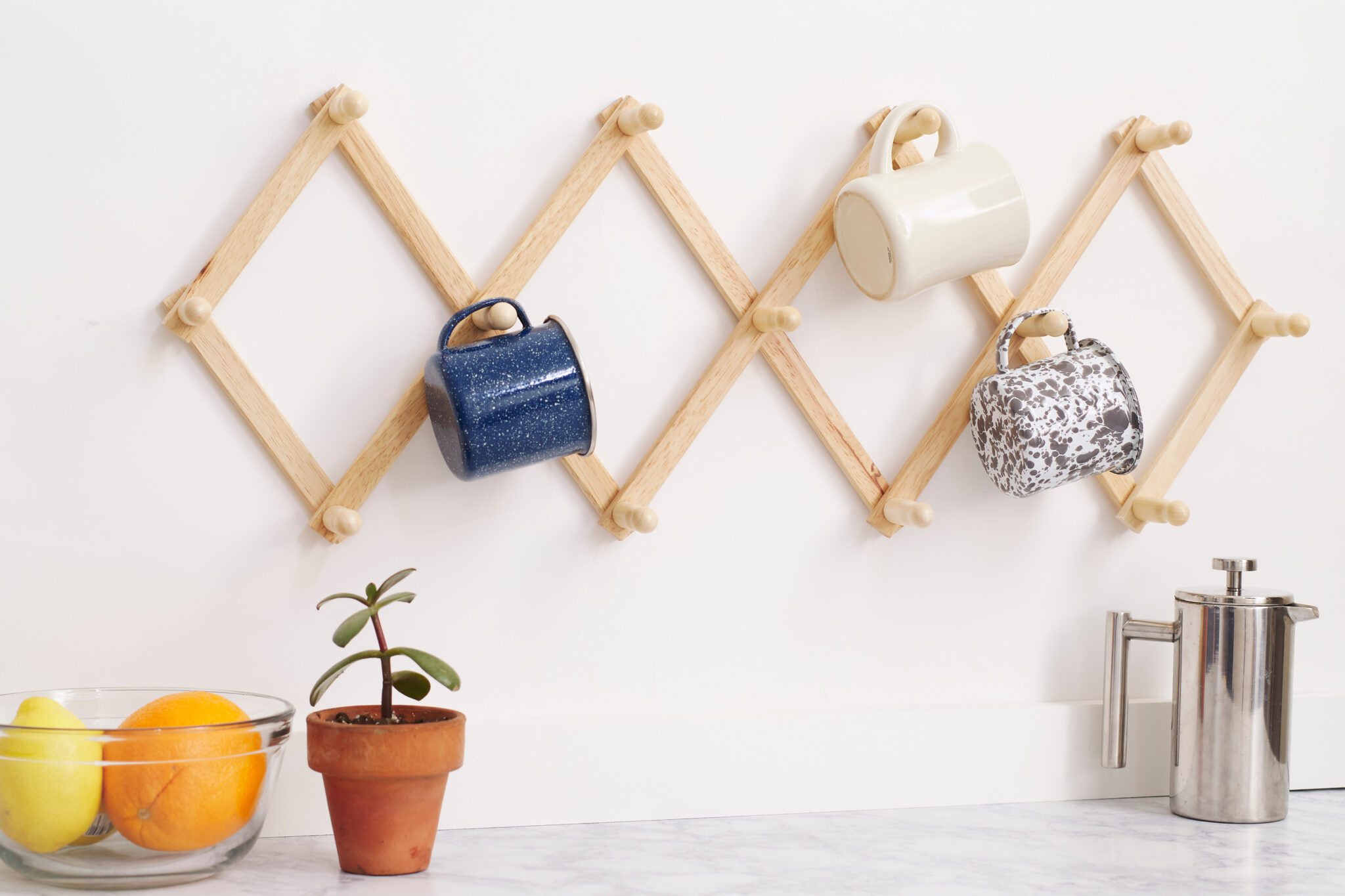
There’s a lot of hobby-related equipment and supplies that would be easier to find and organize if not simply tossed in a drawer. Here are some ideas if you want to elevate the look of your station:
- Mug hangers: Use stylish wall hooks or trees to display your best mugs. Check out Pinterest for some creative ideas for arranging them.
- K-cup drawers: Keurig users can store their K-cups in a way that looks nice and organized, but also allows you to see all the options available.
- Coffee/tea bar organizer: Another way to keep your space clutter-free and cute is by using a stand like this one that has built-in drawers for the stuff you need on hand.
- Tea display: A tiered tea display will show off your great taste and make it easier to find the variety you want.
Keep your tea and coffee fresh (and tasty!)
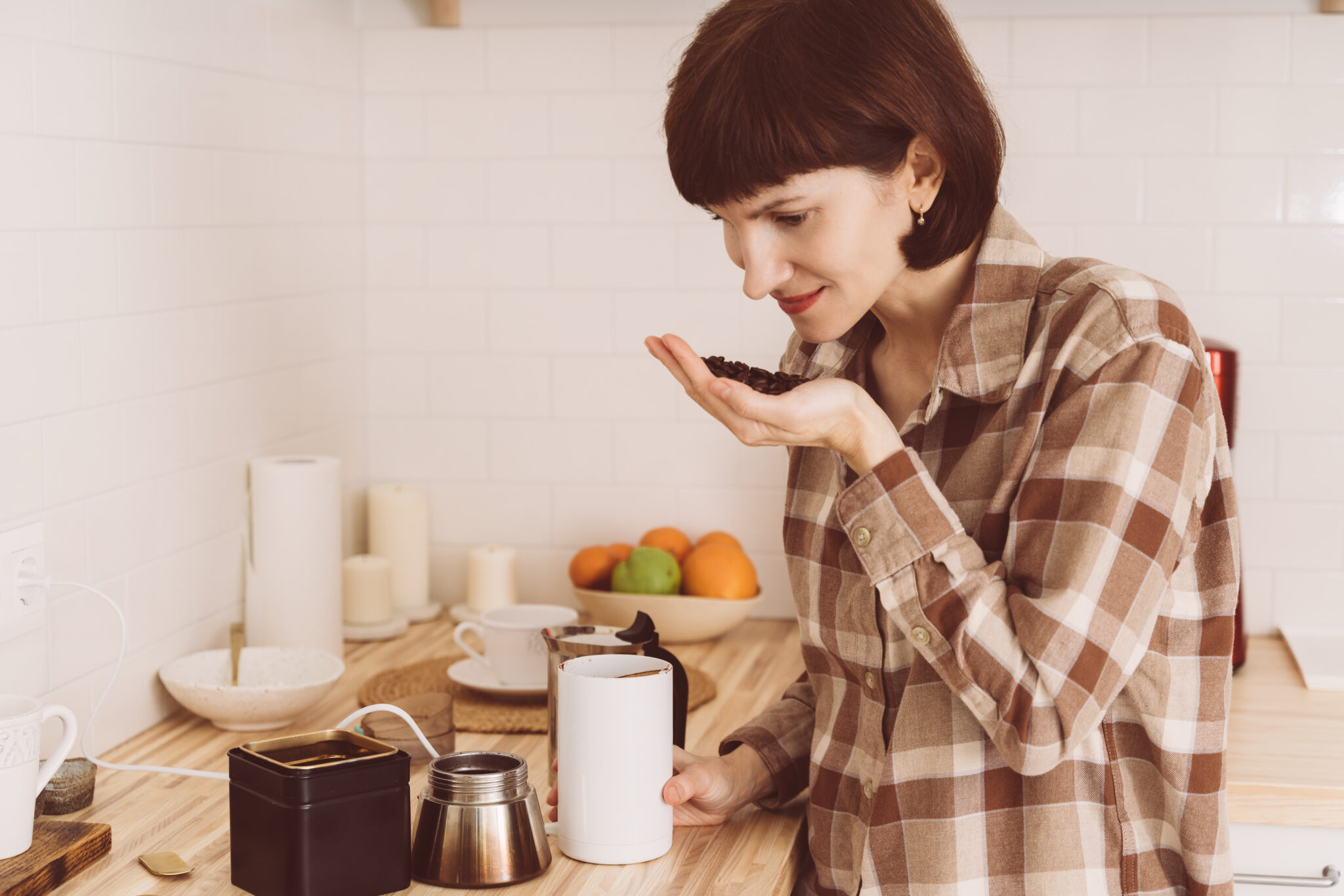
Even the most professional-looking coffee or tea station is of no use if your ingredients are stale. Storing coffee beans and tea leaves properly is key to preserving their flavor and freshness. Here are a few tips for proper storage:
- Use only what you need: To preserve the flavor and aroma of coffee beans, only grind them as needed, just before brewing.
- Use airtight containers: Keep your coffee beans and tea leaves in airtight containers so there’s no exposure to moisture or oxygen, which can cause them to go stale.
- Store at room temperature: Coffee beans and tea leaves should be stored in a cool, dry place, and away from direct sunlight and heat sources. Room temperature is generally considered the best for storage.
- Avoid the refrigerator: While some people store coffee and tea in the refrigerator to preserve freshness, it can cause the beans and leaves to absorb moisture and odors from other foods in the fridge.
- Store different types of teas separately: Different types of teas have different flavor profiles, and they can absorb odors from other types of tea. It’s best to store them separately.
- Keep track of the roast date: Try to use your coffee beans within 4-5 weeks of the roasting date. After that period, they begin to lose flavor and aroma.
- Use tea within 6 months: Once the tea has been opened, it’s best to use it within 6 months, especially if the leaves are not vacuum-sealed.
- Keep an inventory: A simple inventory of your coffee or tea collection can help you remember to rotate your stock and keep track of what you have on hand.
Ideas for fashionable AND functional storage
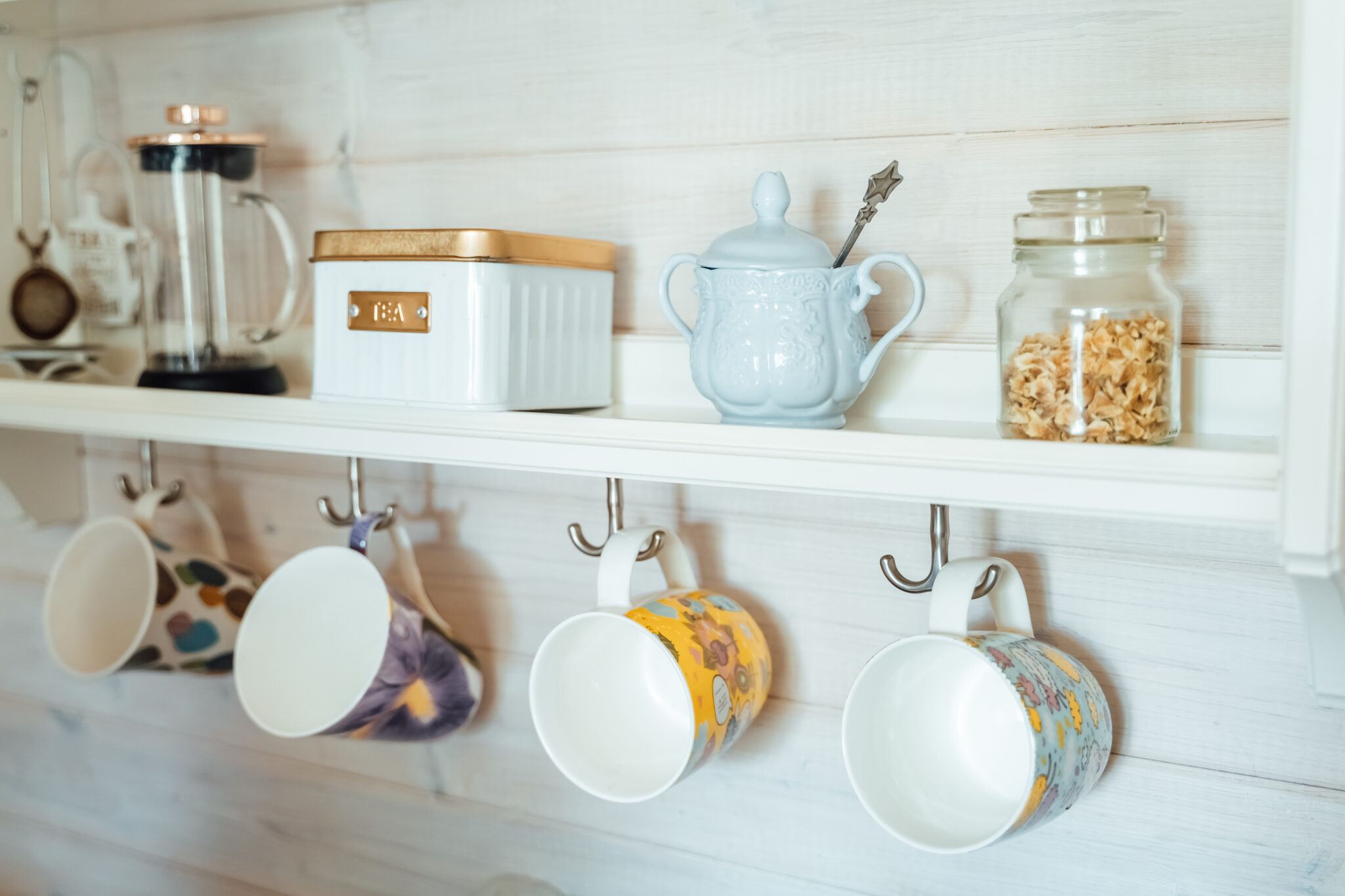
If you want to make sure your setup looks less like a cold, minimalist space and more like someone’s Pinterest board inspiration, consider choosing storage containers and brewing accessories that can also serve as decor. You can also repurpose household items for a fun vintage, farmhouse, bohemian, or shabby chic look. Try incorporating some of the following:
- Vintage coffee cans and tea sets
- Burlap coffee bags
- Mason jars
- Pallets
- Chalkboards
- Wire or wicker baskets
Where in the World Are the Coffee and Tea Lovers
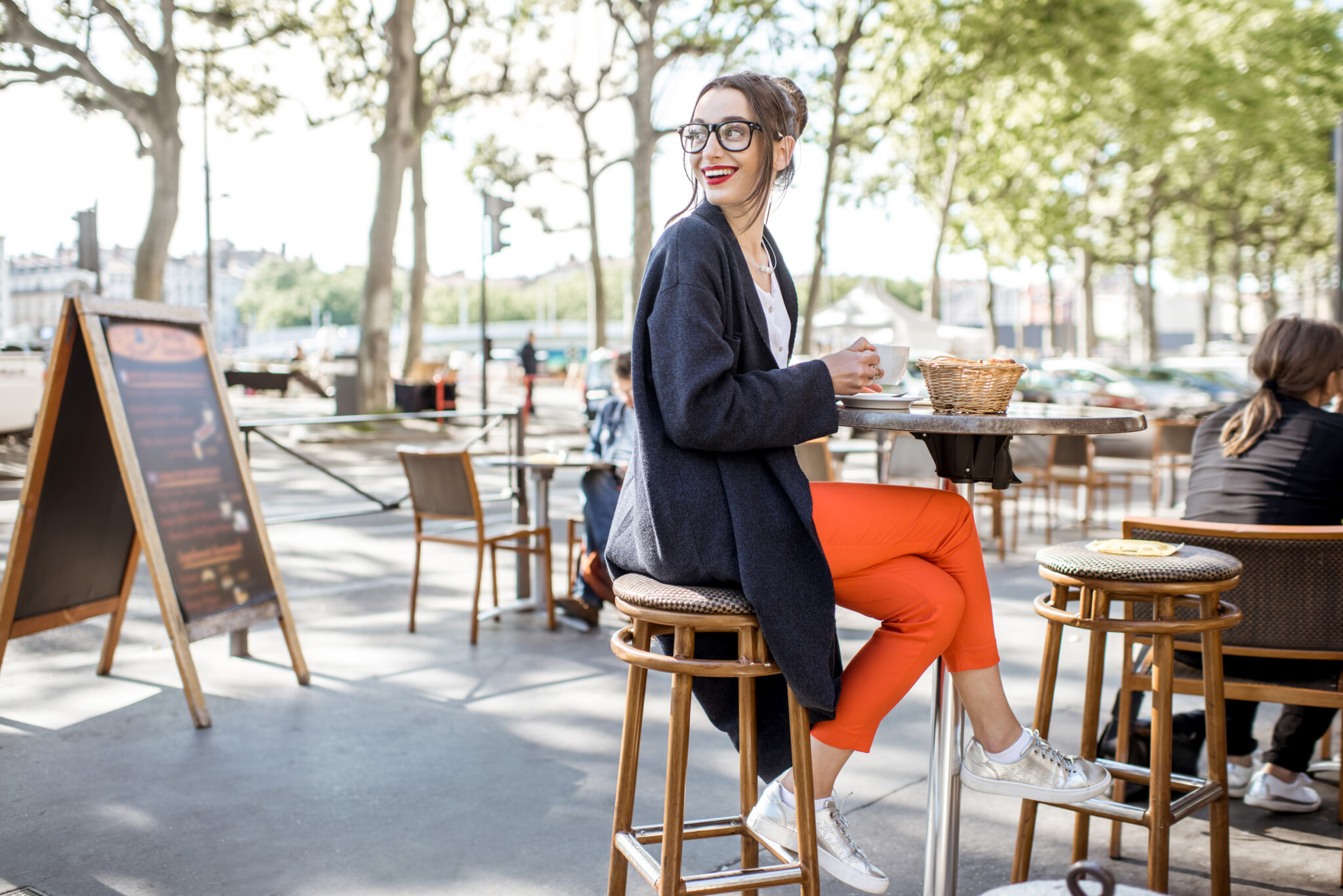
If you’re a coffee and/or tea connoisseur and you’re thinking about moving soon, one of your considerations for where to settle might involve the amenities and vibe of the city you’re looking at.
“…[T]ea sales have grown about 150% since 1990 [in the US] to become a $4.8 billion industry, with ready-to-drink teas making up the largest segment.”
There’s some disagreement about where the “capital” of coffee or tea might be, but there are undoubtedly certain cities that have a higher concentration of coffee/tea shops, roasters, festivals, and culture surrounding the drinks.
So where are the country’s biggest coffee lovers? Berkeley, California has the most coffee shops, with one for every 2,073 people. However, the top 10 cities for overall coffee drinker friendliness are as follows, according to a WalletHub study:
- San Francisco, CA
- Seattle, WA
- Orlando, FL
- Honolulu, HI
- Portland, OR
- Tampa, FL
- Pittsburgh, PA
- Miami, FL
- Sacramento, CA
- Denver, CO
As far as tea drinkers go, there aren’t quite as many in the U.S. as coffee drinkers. But globally, tea is a big deal! Cities with the most tea enthusiasts include:
- Prague, Czech Republic
- Uji, Japan
- Hangzhou, China
- Darjeeling, India
- Fez, Morocco
- Colombo, Sri Lanka
- London, UK
- Cuzco, Peru
- Moscow, Russia
- Charleston, South Carolina
Whether you’re a fledgling or frequent flier when it comes to coffee and tea, there’s plenty out there that can help you learn a little more about the craft, or just make your daily indulgence that much better.
The post Love Caffeine? Here’s How To Set Up Your Kitchen as a Coffee and Tea Enthusiast appeared first on Moving Advice from HireAHelper.